Disclosure: We may get commissions for purchases made through links in this post.
Asphalt is one of the most reliable and cost-effective materials that you can use to beautify and increase the value of your home. It is often used in suburban driveways and pavements because of its ease of maintenance and smooth surface. However, various circumstances can cause the asphalt to crack. We've researched how to fix alligator cracks to keep your asphalt surface in pristine condition.
Depending on the cause and severity of the cracking, and your own DIY expertise, you might require a consultation with a professional contractor. To repair alligator cracks in an asphalt surface, you can try any of the following methods:
- Fortify the subgrade
- Remove dust and debris on routed cracks
- Apply weed killers
- Fill and seal the cracks
- Apply patching compound
- Leave the asphalt to cure and settle
As with all things, prevention is better than cure. We have gathered a list of things you need to look out for showing that your pavement may need to be repaired, as well as what to avoid to prevent asphalt from cracking in the first place.
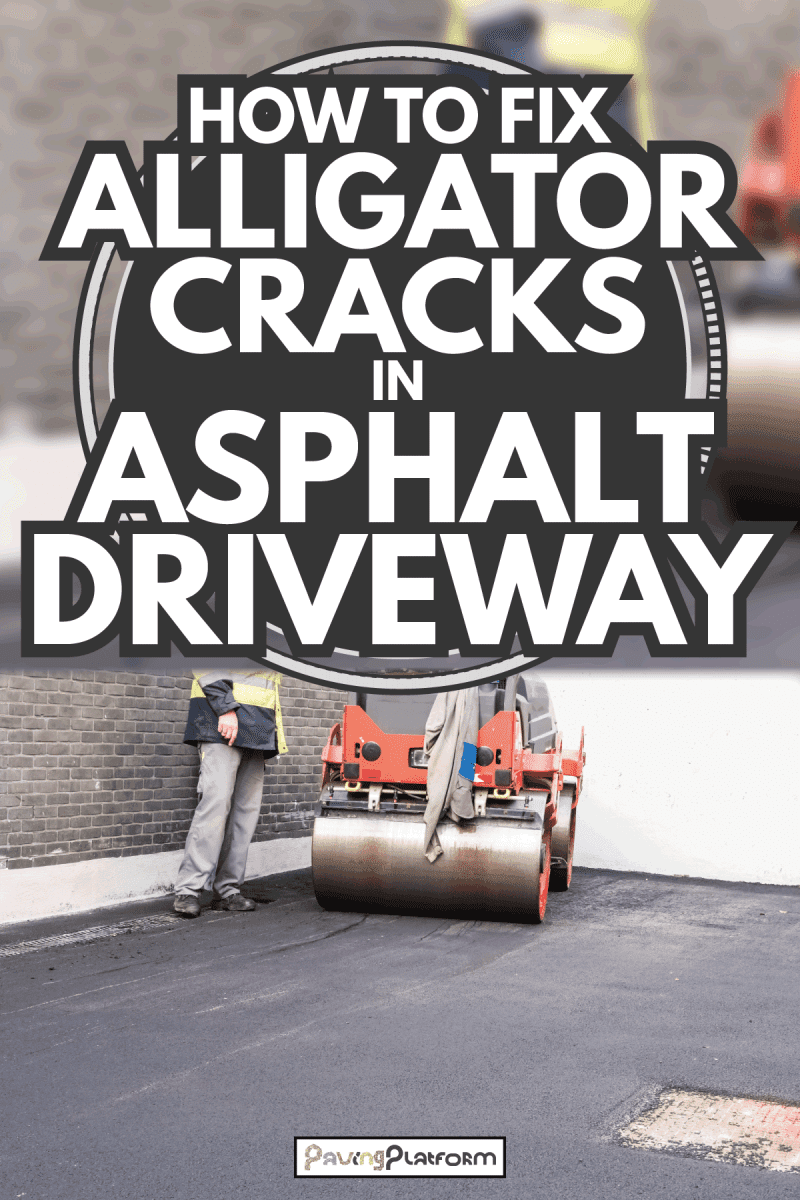
How To Fix Alligator Cracks In An Asphalt Driveway
Alligator cracks, or spider webs, are damage commonly caused by heavy vehicles driving over the surface before the asphalt is fully settled. True to its namesake, alligator cracks resemble an alligator’s back, though some say they look more like a spider web.
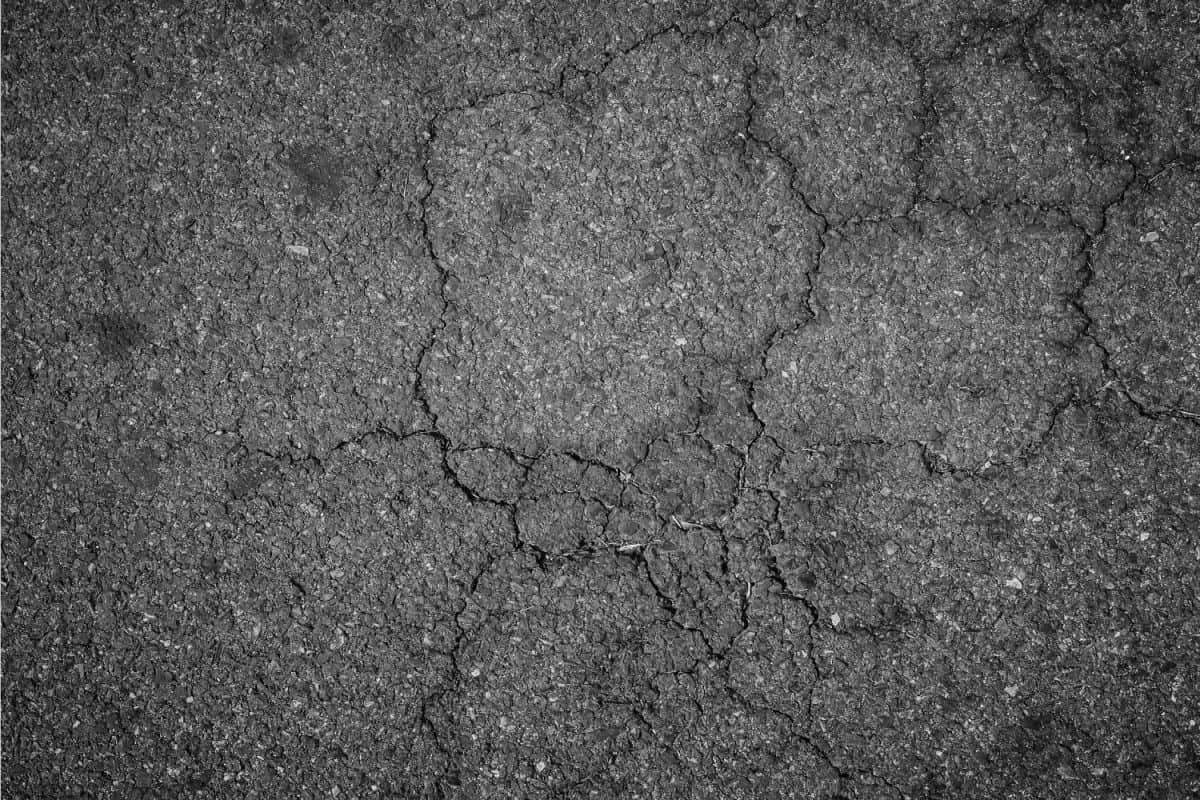
Fortify the subgrade
According to the International Union of Laboratories and Experts in Construction Materials, Systems, and Structures, the poor foundation of the sub-base is the root cause of most asphalt breakage. Alligator cracks can result from a weakened subgrade that causes it to break under too much traffic and pressure. So it must be the first area to be checked and treated by trained manufacturers.
Remove dust and debris from routed cracks
The dirt inside cracks can become a breeding ground for weeds, which compromises even the best crack repairs as they grow. Pull them out by hand, and spray with a pressure washer to get rid of debris.
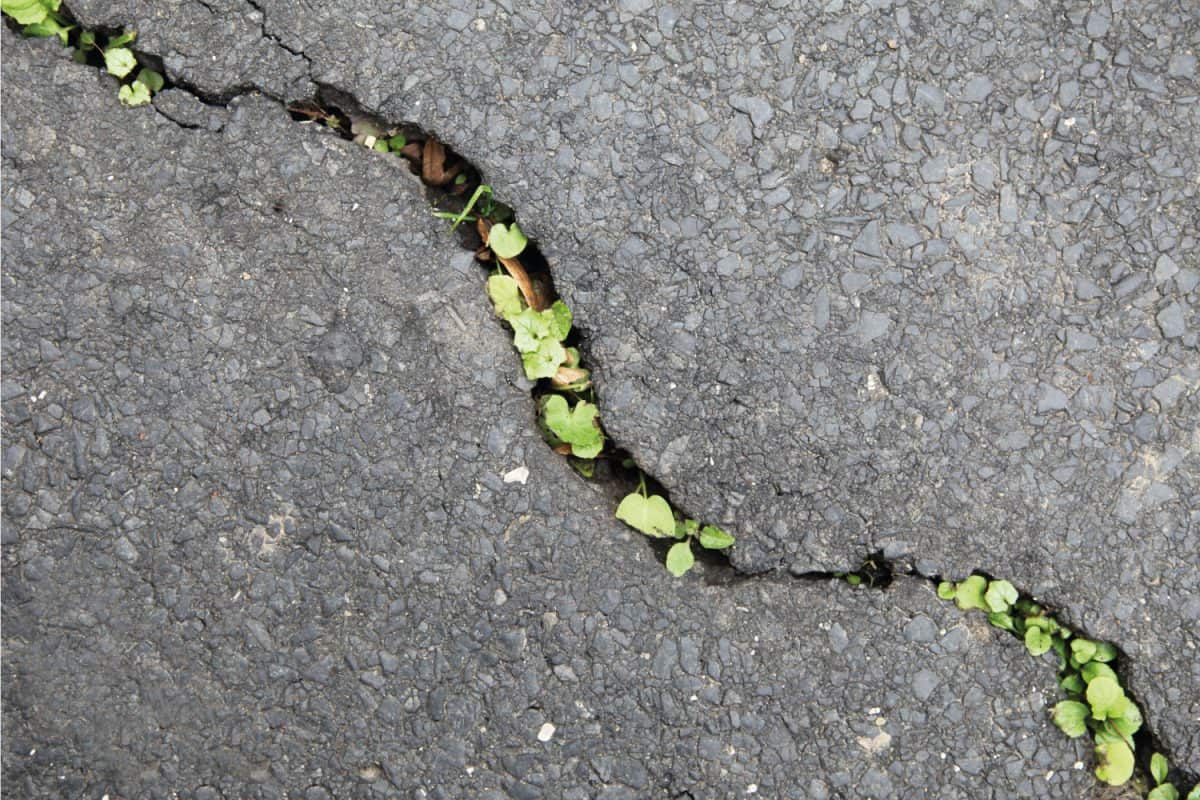
Apply a weed killer
Weeds displace the weight distribution of Asphalt as it grows. It can break through the smallest cracks and loosen the material. Over time, it will be able to buckle and damage the asphalt when it seeps to the surface—potentially resulting in alligator cracks. Discourage weed growth by applying a weed killer through the gaps.
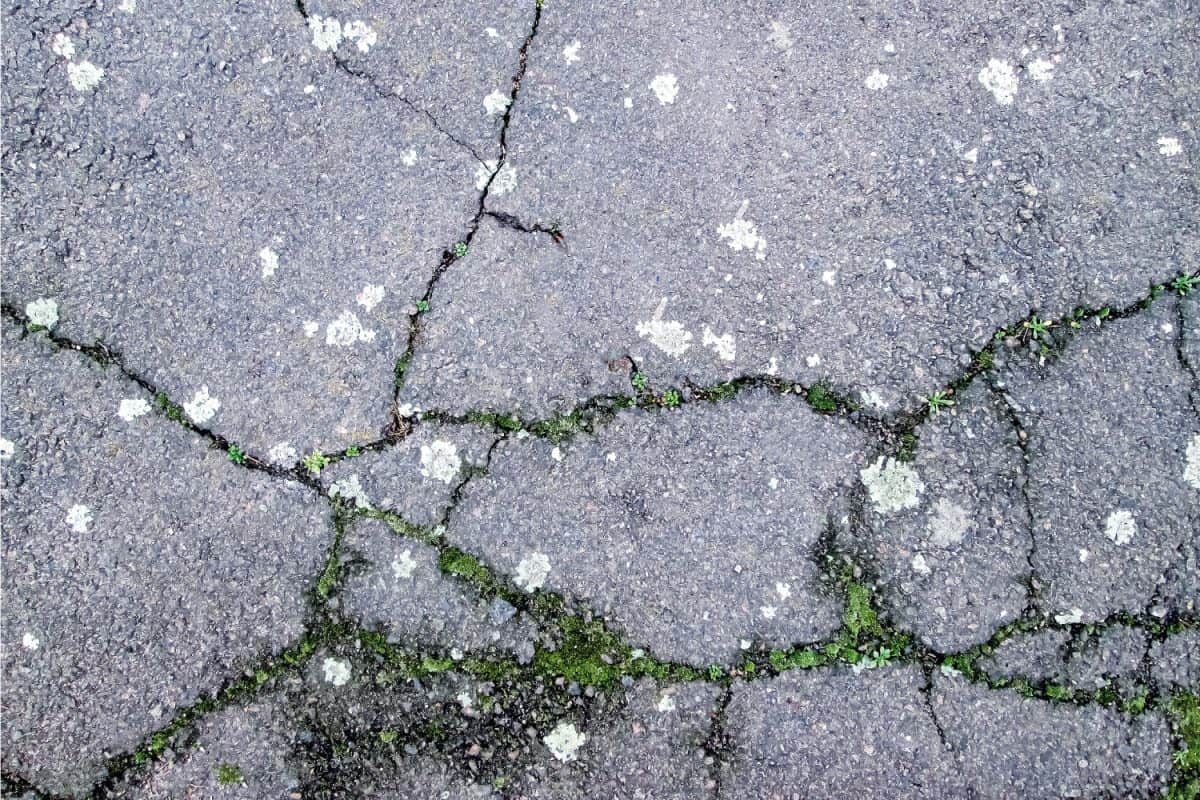
Fill and seal the cracks
Prevent further crack expansion by filling and/or sealing it. Smaller cracks less than 1/2-inch wide can benefit from crack filler compound, while more serious cracks would need sand reaching 1/4-inch of the surface.
Apply patching compound
Cracks larger than 1/2-inch need a cold patching compound that is sold by the bag or can. Take time to read the instructions, as you must only apply patching at a warm temperature. Some fillers have more specific conditions, needing at least a temperature of 55 degrees Fahrenheit for it to work.
Leave the asphalt to cure and settle
Strictly follow the instructions and do not apply any pressure to the material. This process can take several hours or even days. Failure to comply can nullify the entire process or significantly weaken the foundation. Make sure to surround it with caution tape or cones to signal people to stay away from the perimeter.
What Causes Alligator Cracks To Form?

Heavy Vehicle Traffic
Drying usually takes only up to a few days, but fully curing can take up to a year. While dried asphalt can be safe for driving, you should not be driving heavy vehicles such as trucks and heavy delivery vans over it.
After a year, cured asphalt can withstand up to 26,001 pounds of weight. You might risk its structural integrity if you do not follow this rule, resulting in alligator cracks.
Fluctuating Heat Variations
Environmental causes can affect the structure of asphalt. The unpredictable thermal expansion and contraction of the base, coupled with traffic conditions—either foot or vehicle—can cause tension and eventually break the surface.
Material Fatigue
A weakened subgrade is usually the culprit of Alligator cracks as a result of load-related deterioration. Applying the principle of pyramids, a weakened foundation will cause the entire structure to topple and crumble. The same applies to the damage of asphalt.
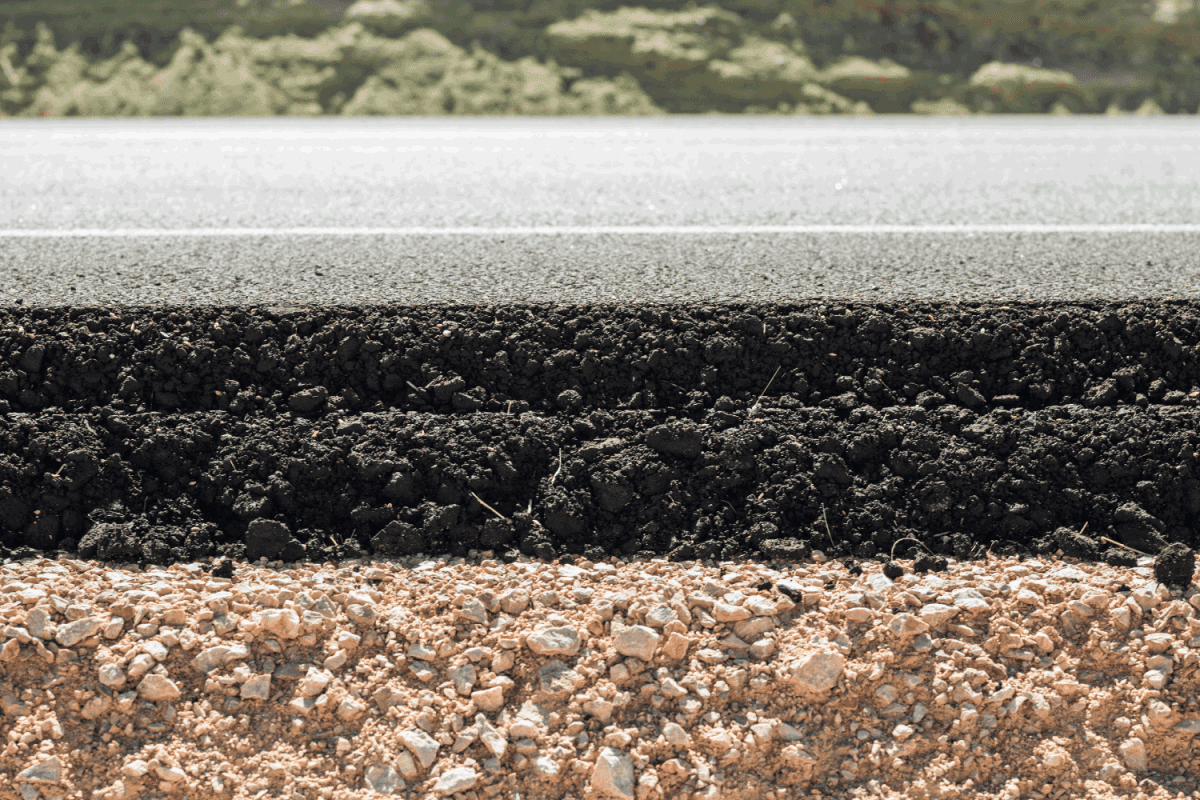
Cold Weather
When chilly seasons roll around, you will need to tend to your Asphalt driveways more than usual. Similar to extreme heat fluctuations, loss of heat is Asphalt’s number one enemy. The base can contract, water and ice can seep through the asphalt, causing the surface to crack.
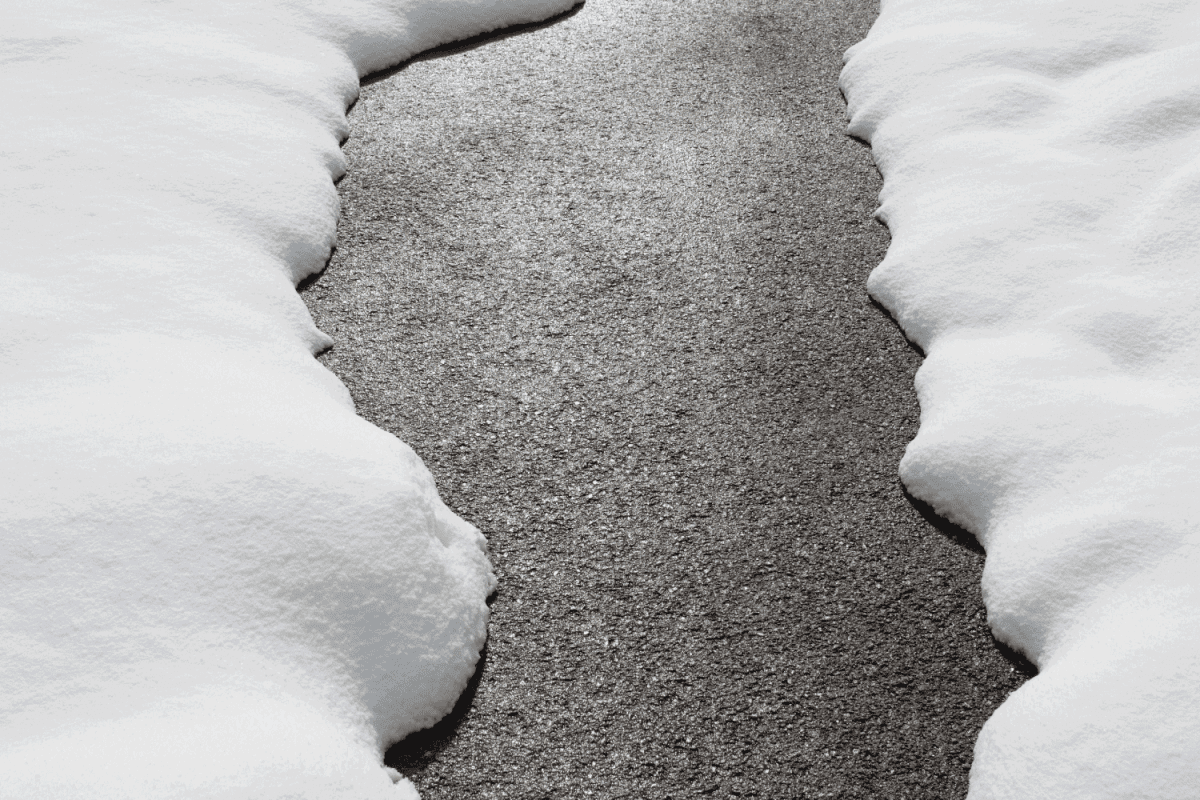
Inadequate Pavement Thickness
When asphalt is spread too thin, the distribution of weight and the overall quality of the pavement is compromised. This is why we sometimes see depressions, unraveling, and alligator cracks on surfaces. If it is not thick enough, then it is not durable.
Improper Installation
People usually opt for DIY-ing their private property, especially their driveways. However, not consulting with experts can cause problems in the long run. A common rookie mistake is inaccurately laying the sub-base, causing the surface to crack under a pressure that is easily handled by a properly-installed sub-base.
Little To No Maintenance
A properly maintained asphalt driveway can last between 20-30 years. If you live in an area experiencing constant cold weather, you will need to prevent snow and ice from accumulating and seeping into your pavement. If you live in tropical areas, you will need to remove plants and weeds surrounding or growing around the area.
Not applying sealants immediately when you start noticing small cracks will worsen the quality of your asphalt. Small damaged areas can expand, and alligator cracks will cost you more unless you take the time to maintain your asphalt driveway instead.
Signs You Need To Repair Your Asphalt
Caring for your asphalt driveway means being alert in your surroundings and noticing when things may need a touch-up or a major repair. Here are the signs you need to look out for:

Buckling & Warping
An adequate driveway should appear level and balanced. If you notice that the surface has subtle wave-like depressions, it may be caused by a problem in the base. Parking in the same spot frequently can also cause these wavy sections, and it is best to have it treated immediately before cracks appear.

Faded Color
Harsh sunlight can cause reflection cracking, where sun rays make the asphalt brittle by drying up the moisture too much, which results in surface cracking. The first telltale sign is on the faded color of the pavement. If you notice the color turning from black to gray, it’s time to have it treated.
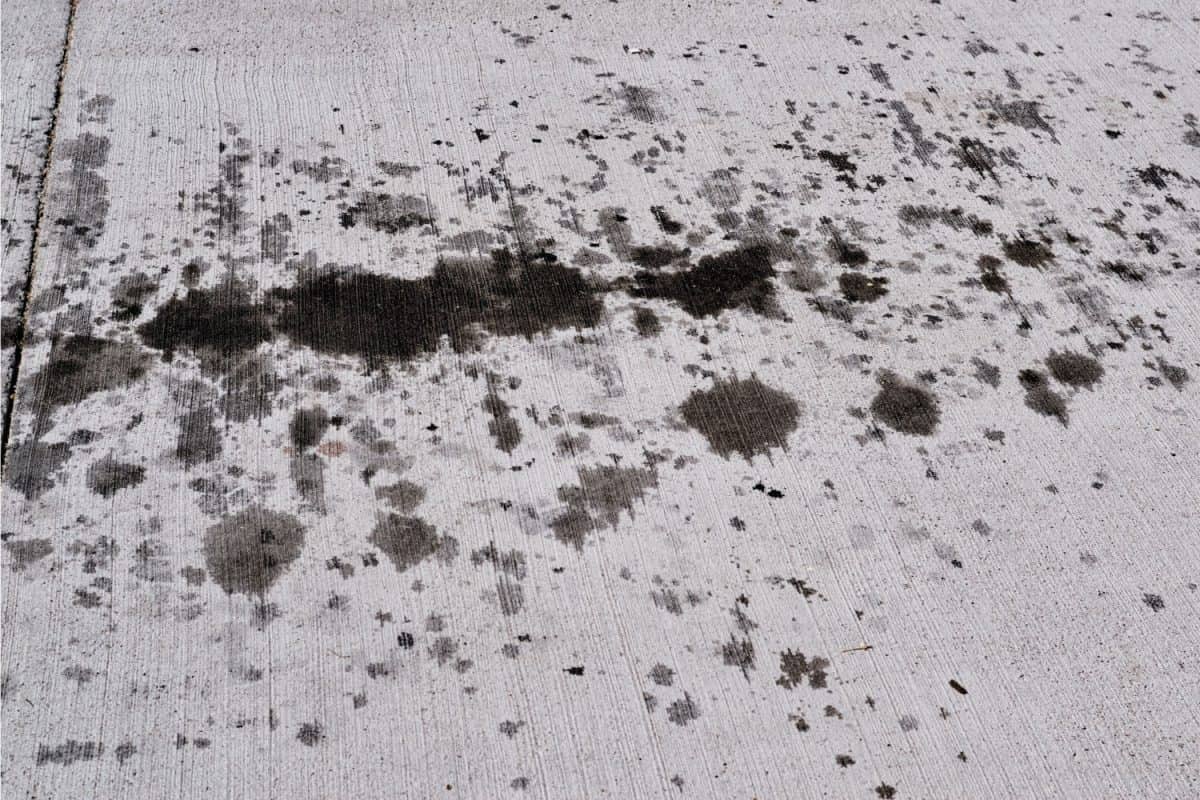
Stains
Be on the lookout for chemical stains and industrial solvents that can accidentally make their way to your driveway. These stains are notorious for destroying the binding agents in asphalt which can form alligator cracks if left untreated.
We recommend consulting your contractor immediately when you start noticing them since they can potentially sink to the foundations.
Sinkage
If you notice sinkage around structures, it may be a result of an eroding compacted base. This means that there may be something wrong with the gutter that is affecting the downspouts, impacting the pavement. We recommend having a professional take care of this issue to ensure it is addressed aptly.
What To Consider When Hiring A Paving Contractor
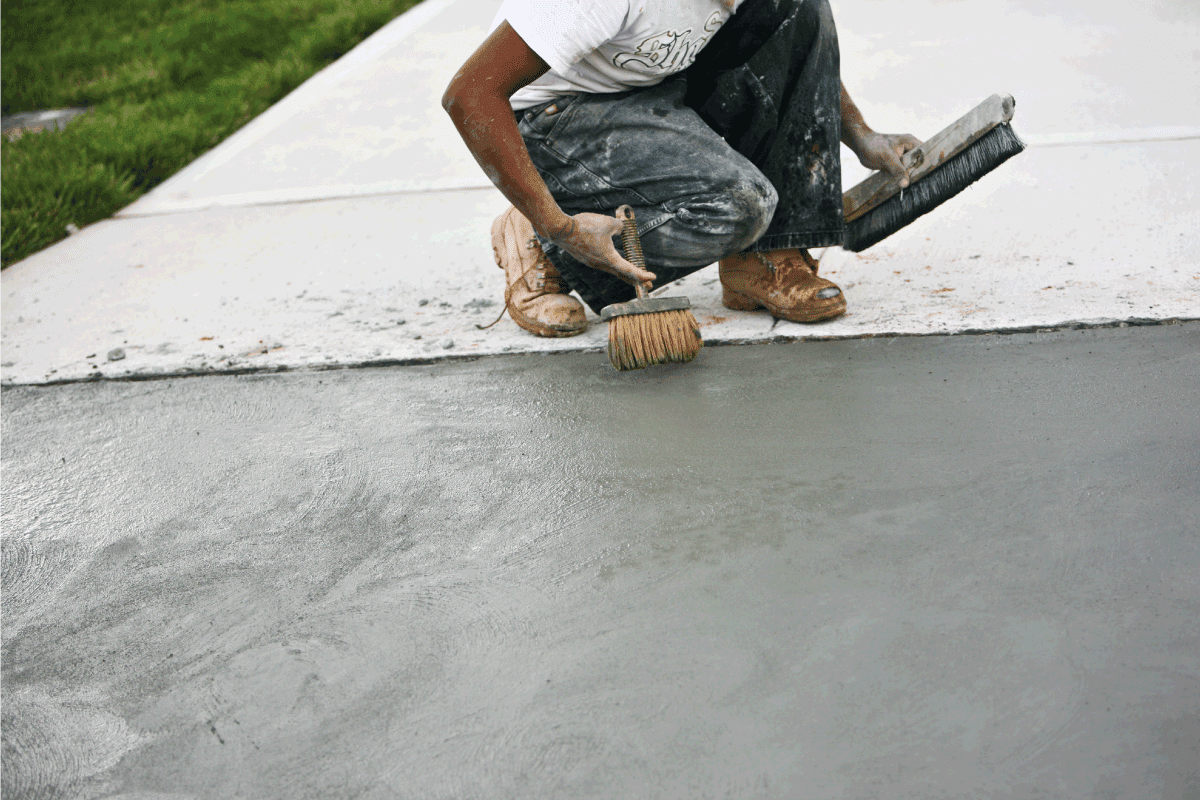
Some driveway issues require professional intervention. Access to a reliable paving contractor is essential to ensure that your pavement is well taken care of. Here are the things to look for when choosing your contractor:
Custom Asphalt Mixes
Your contractor should have the necessary materials ready for any situation. Often, so much time is wasted trying to find the right materials and have them shipped, so easy access should be something to consider.
Quality & Craftsmanship
As with any project, guaranteed quality is imperative. You should ensure that you will always get your investment. After all, your property will be affected by their quality of work.
Insurance Coverage
When drilling and machinery are on your property, you want to be protected as much as possible. Make sure that they can offer you General Liability, Auto Liability, Workers Compensation, and an Umbrella policy. The minimum is usually capped at $500,000 but some can offer as much as $1-$2 million of insurance coverage.
Final Thoughts
Driveways and pavements are part of your property that require maintenance. You have invested much in adding value to it, so you need to look out for any signs of damage and have it treated immediately.
Interested in learning more? Check out: "Paver Vs. Asphalt Driveway."

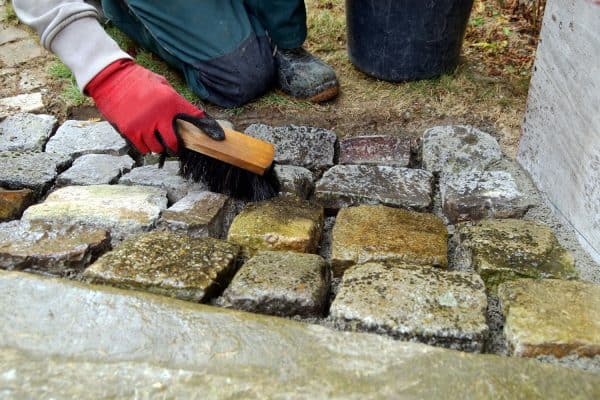
![Blue stone pavers on the garden patio, How To Clean Bluestone Pavers [Care & Maintenance Tips]](https://pavingplatform.com/wp-content/uploads/2022/03/Blue-stone-pavers-on-the-garden-patio-600x400.jpg)
![washing services - block paving cleaning with high pressure washer - Can You Pressure Wash Travertine Pavers? [Best Cleaning Methods]](https://pavingplatform.com/wp-content/uploads/2022/03/washing-services-block-paving-cleaning-with-high-pressure-washer-600x400.jpg)